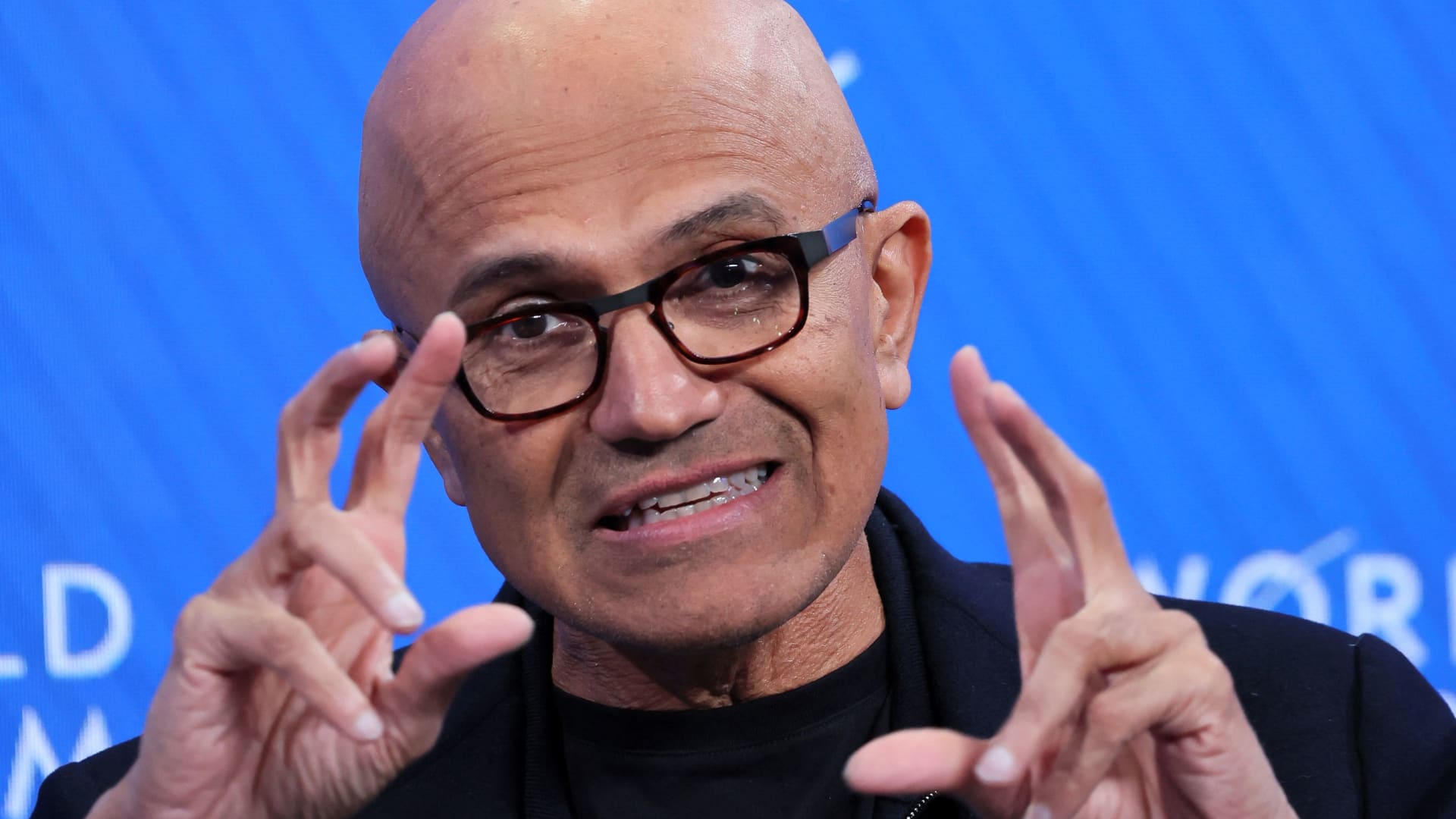Executive Chairman and CEO of Microsoft Corporation Satya Nadella attends a session during the 54th annual meeting of the World Economic Forum in Davos, Switzerland, January 16, 2024.
Denis Balibouse | Reuters
Microsoft is accusing The New York Times of “unsubstantiated” claims in the publisher’s lawsuit filed in December against OpenAI, a case that could have major implications for the future of generative artificial intelligence.
In a motion to dismiss part of the suit on Monday, Microsoft said the Times presented a false narrative of “doomsday futurology” in which OpenAI’s ChatGPT chatbot will decimate the news business. In the opening line of its argument to the court, Microsoft compares the lawsuit to Hollywood’s resistance to the VCR, which was created in the last 1970s and allowed users to record television programs.
“In this case, The New York Times uses its might and its megaphone to challenge the latest profound technological advance: the Large Language Model,” attorneys for Microsoft wrote. Microsoft is OpenAI’s largest investor, having pumped about $13 billion into the startup.
The filing marks the latest salvo in the battle between OpenAI and the media industry, which is increasingly concerned that AI models are being trained on valuable content that’s been produced over many decades. In its lawsuit, the Times accused OpenAI and Microsoft of copyright infringement and abusing the newspaper’s intellectual property in training LLMs.
OpenAI previously asked a judge to dismiss parts of The New York Times‘ lawsuit against it, alleging that the publisher “paid someone to hack OpenAI’s products,” such as ChatGPT, to generate 100 examples of copyright infringement for its case. OpenAI claimed it took the Times “tens of thousands of attempts to generate the highly anomalous results,” and that the company did so using “deceptive prompts that blatantly violate OpenAI’s terms of use.”
In the latest filing, Microsoft’s lawyers argue that, “content used to train LLMs does not supplant the market for the works, it teaches the models language.”
A New York Times spokesperson didn’t immediately respond to a request for comment.
Since releasing ChatGPT to the public in late 2022, OpenAI has become one of the hottest startups on the planet, with a valuation reportedly over $80 billion.
Sam Altman, CEO of OpenAI, during a panel session at the World Economic Forum in Davos, Switzerland, on Jan. 18, 2024.
Bloomberg | Bloomberg | Getty Images
OpenAI has recently acknowledged that it’s “impossible” to train top AI models without copyrighted works.
“Because copyright today covers virtually every sort of human expression—including blog posts, photographs, forum posts, scraps of software code, and government documents—it would be impossible to train today’s leading AI models without using copyrighted materials,” OpenAI wrote in a filing last month in the U.K., in response to an inquiry from the U.K. House of Lords.
As recently as January, in Davos, Switzerland, OpenAI CEO Sam Altman said he was “surprised” by the Times’ lawsuit, saying OpenAI’s models didn’t need to train on the publisher’s data.
“We actually don’t need to train on their data,” Altman said at an event organized by Bloomberg in Davos. “I think this is something that people don’t understand. Any one particular training source, it doesn’t move the needle for us that much.”
OpenAI has struck deals with Axel Springer, the German media conglomerate that owns Business Insider, Morning Brew and other outlets, and is also reportedly in talks with CNN, Fox Corp. and Time to license their work.
— CNBC’s Sam Meredith contributed to this report.
This story originally appeared on CNBC

